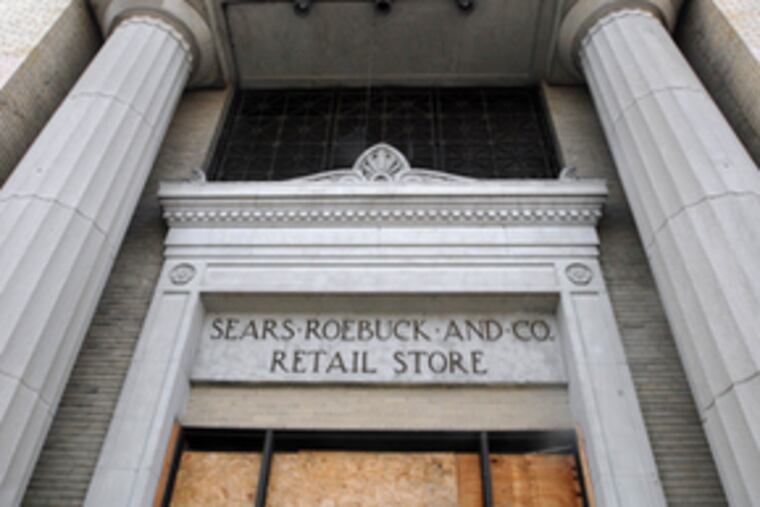Campbell Soup says it’s determined to stay in Camden
Campbell Soup, the last Fortune 500 company in Camden, suffered a severe blow to its plans to create a 110-acre office park on the Admiral Wilson Boulevard when a judge invalidated its development plan this month.

Campbell Soup, the last Fortune 500 company in Camden, suffered a severe blow to its plans to create a 110-acre office park on the Admiral Wilson Boulevard when a judge invalidated its development plan this month.
But Campbell officials say the company is standing by the plan and the city that has been its home for 140 years - despite past warnings that it might move if the office park isn't approved.
Anthony Sanzio, Campbell's director of communications, said the company had maintained all along it would "consider all its options" if the plan didn't go through.
"Of course, the first question out of the reporters' mouths is, 'Would you leave Camden?' " he said. "We've never threatened to leave. We want to stay. We're committed."
But standing in the way of Campbell's expansion is another Camden icon, albeit a dilapidated one - the Sears Roebuck & Co. building, a national historic landmark built in 1927.
The building, renowned for its Greek Revival-style architecture, mostly has been vacant since 1971, when Sears opened a department store in Moorestown.
Campbell's wants to raze the Sears building, which was bought last year by Dr. Denim, a Philadelphia clothing retailer. Preservationists and activists have vowed to stop the demolition.
"Why can't Campbell's build around it?" asked Frank Fulbrook, a Camden activist. "I see no reason why you can't have Dr. Denim and Campbell's being neighbors - and leave the Sears building alone."
Dr. Denim's owner, Ilan Zaken, did not return phone calls seeking comment on his plans. Fulbrook said Zaken planned to spend $1 million to rehab the space for warehousing, retail space and a recording studio.
According to Sanzio, experts hired by Campbell said that just making the Sears building habitable would cost $6 million; there are no working restrooms, the copper plumbing has been stripped, and rainwater pours through the roof.
But the building has gotten a reprieve thanks to a lawsuit Fulbrook filed. He argued that Camden Planning Board Chairman Rodney Sadler had a conflict of interest when he presided over an April meeting that approved Campbell's plan.
Sadler is a nonvoting member of the state's Economic Development Authority, which endorses Campbell's proposal.
Last week, Superior Court Judge Francis J. Orlando agreed that Sadler's participation was a conflict, even though Sadler recused himself from voting on the plan.
Campbell's can appeal Orlando's decision or ask the planning board to hear the matter again without Sadler.
Sanzio said the company was not considering drafting a new plan.
"Obviously, we're disappointed with the judge's decision, but we're not going to be deterred by a procedural error," he said.
He noted that the judge had not ruled on the merits of Campbell's plan, although Fulbrook and others plan to challenge them as well.
The plan would create an office park stretching from Campbell's current location to the Admiral Wilson Boulevard (Route 30). Campbell would occupy about 40 acres, with a new, 80,000-square-foot building as the anchor. The company would be the master developer for the rest of the 110 acres.
The proposal would cost Campbell $72 million, and taxpayers would kick in $23 million for road upgrades and utilities.
Campbell's defeat last week was the fourth time that a major Camden redevelopment plan has been shot down in court.
Last year, a judge invalidated a plan in Waterfront South because the planning board had failed to show how it would fit within the city's master plan.
In 2006, a $1 billion Bergen Square redevelopment and a $1.2 billion Cramer Hill project were thrown out because the planning board had not properly sworn in witnesses who testified about each.
Caren Franzini, the state Economic Development Authority's chief executive, isn't daunted by that record. She said city, county and state officials all remained behind Campbell.
"All the parties, we're all still working together because we all want it to happen," she said. "So we have a high level of confidence."
She said the development was vital to Camden because it would not only cement Campbell's presence, but also attract businesses to the state's poorest city.
"That part of the city is just prime for development," she said. "This is critical . . . to have a good corporate citizen stay and expand."
Campbell pays $1.3 annually in lieu of taxes, donates more than $1 million to charities, and employs 1,700 people, although critics say few jobs go to city residents.
The office park would occupy an underused stretch of land that includes the Sears building and an old Canal Liquor parking lot on a highway to Philadelphia that used to be lined by strip clubs and adult bookstores.
Fulbrook likened Campbell's plan to creating a gated community in the heart of Camden.
"I've never opposed Campbell's building an expansion," he said. "It's the suburban office park I object to. It's a one-use-only approach."
Sanzio said the park would not be a gated island. Instead, he said, it would bring far more civic life to that part of the city.
"We actually want to become more inclusive and more a part of the environment here," Sanzio said. "If you look at this area, it's not a place where there are a whole lot of people walking."